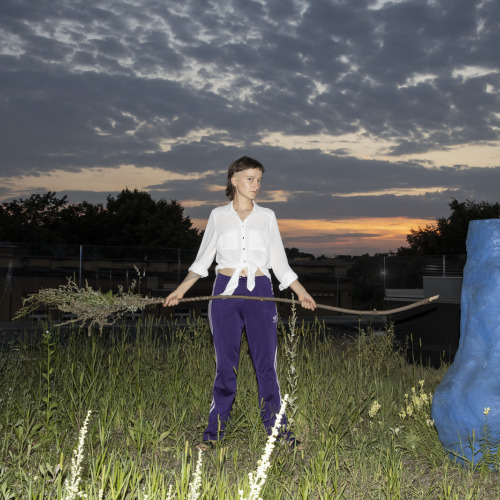
Antonia’s Line, a woman’s family chronicle
The film begins when Antonia is in her eighties. The narrator tells us
that a peaceful and satisfied woman is at the end of her life. Her thoughts go
back to a time before the Second World War, when she returns to her native
village with her daughter Danielle to visit her mother, Allegonda, who is lying
restlessly on her death bed, complaining about her dead husband, and waiting
for her last breath. Antonia decides to stay in the place where she was born.
She works really hard and revives the farm. It becomes a haven for to her
family and many other unusual characters, among them a converted priest, a
backward girl who has been raped, a fascinating philosopher and others, who
cannot survive in the village or in the bourgeois world and stereotypical norms
and ideas. Antonia’s farm is a little part of the world where people who are
otherwise marginalised can find happiness, love, contentment, lively sex and
the fulfillment of their vocational and spiritual aspirations. The seasons
change and the farm grows; Antonia becomes a grandmother, since her daughter
Danielle has a daughter, Therese, and later on falls happily in love with her
teacher, Lara. Therese gives birth to Antonia’s great-granddaughter, Sarah. The
extraordinary female characters are placed next to male characters as their
lovers, helpers or fathers of their children. This is a film about women’s
independence, ‘said Marleen Gorris, ‘because the women in it are really
themselves, and not defined by the roles of wife, mother or daughter. Of
course, the whole thing is just a fairytale.’ There is no doubt that she has
succeeded in creating a witty and well-honed film, and there are few like it to
be found in the cinema of the ‘90s.
The film Antonia’s Line,
by Dutch director Marleen Gorris, which will be premiered in Slovenia during the City of Women, is definitely a contribution to the
cinema of the ‘90s deserving of a special presentation. The story, based on the
director’s outstanding screenplay, inverts
traditional, patrilineal family chronicles. The director/writer introduces just
a slight twist, which dramatically alters the flow of the narrative: it follows
a family matrilineally. At the same time,
‘Antonia’s Line’ belongs among those rare and precious films in which women are
really themselves and not merely images of stereotypical ideas about them. The
author subtly mixes different periods and narrative perspectives; Dr. Neva
Šlibar will be discussing this aspect of the film. By winning an Oscar for best
foreign film, this funny and witty film, which embodies the director’s feminist
principles and beliefs, found itself in the context of Hollywood. Marcel Štefančič Jr. will tell us
more about that.
It will be a great
honour to welcome the Belgian actress, Els Dottermans, who will also take part
in the discussion. She has given some outstanding performances in the theatre
and on film, including that of Antonia’s daughter, Danielle.
Cast: Willeke van Ammelrooy, Els Dottermans, Dora Van Der Groen, Jan
Decleir, Mil Seghers, Marina de Graaf, Jan Steen, Veerle Van Overloope;
Production: Bergen Prime Time Bard Entertainment & NPS Televisie
In collaboration with: Cankarjev dom


